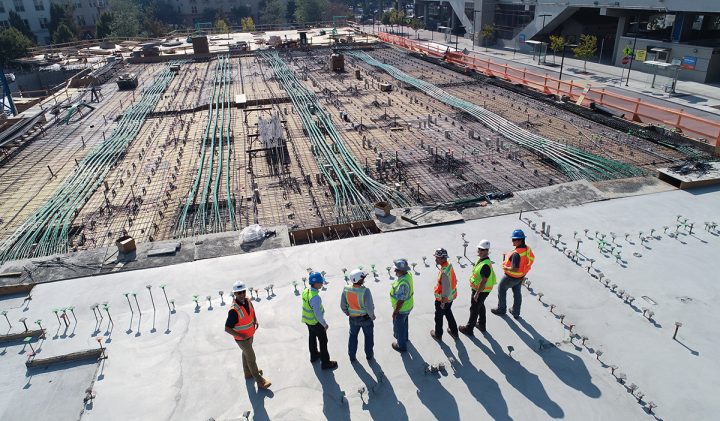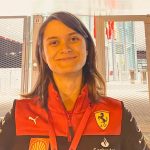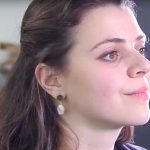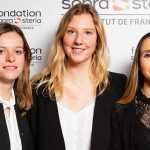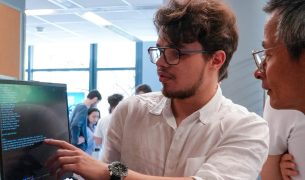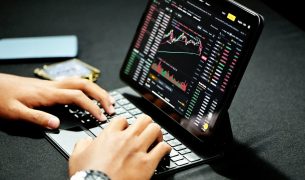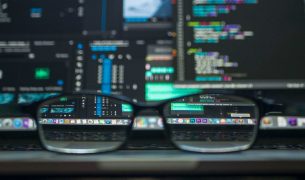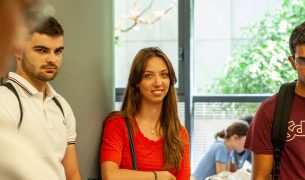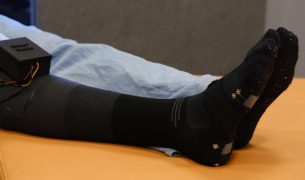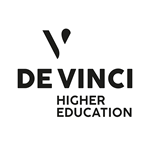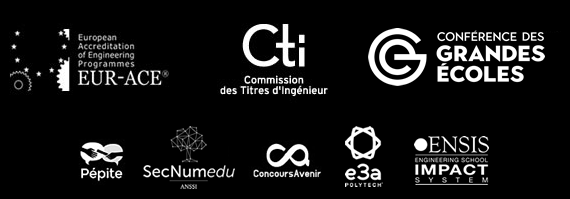When technology and human nature go hand in hand, nothing is more motivating than embarking on an entrepreneurial venture. This philosophy also applies to Jean-Philippe Panaget, class of 2012, and Arnaud Toma, class of 2020, two ESILV graduates who started businesses with social impact after their studies in engineering school. Rather than a buzzword, for these ESILV entrepreneurs, the “tech for good” approach is a state of mind that pushes them to innovate for the collective interest.
“Tech for Good”: behind this expression, which is gaining momentum in the entrepreneurial ecosystem, there is a whole practical philosophy that honours the role of engineers in society. These experts can intervene in very different fields, innovate, design, and manufacture technologies that meet today’s and tomorrow’s challenges. ESILV’s mission is to train innovative and responsible actors ready to experiment and actively participate in the progress of our societies.
This is why CAD42 and Medical3D, two companies launched by ESILV alumni, are mobilising technologies such as IoT, AI, BIM and medical 3D printing to help humans live a better life. As guests of the Devinci Start-up Week, Jean-Philippe Panaget, class of 2012 and Arnaud Toma, class of 2020, gave an overview of the impact of the companies they co-founded upon graduation from ESILV
Becoming a tech for good entrepreneur: the trigger for the big move
Co-founder of CAD42, a hybrid company presenting security, data, and BIM elements, Jean-Philippe Panaget, ESILV entrepreneur, went through the genesis of his project.
“At the time, there was a Pépite Ponpite structure, and I took a student-entrepreneur status, which allowed me to have a different situation from that of an international employee, as well as premises and exciting support. As a result, we launched CAD 42 in 2016. Today there are 11 of us, four co-founders, but we are all employees of the company.
At CAD42, we make connected objects for construction sites, allowing us to alert workers when they are in danger: either too close to a machine that is backing up or above a crane load. Among our clients, there are several well-known companies, such as Vinci, Bouygues, Eiffage, and others.”
His catalyst for launching himself into entrepreneurship. “At the time, Raphael and I (Garcia Broton, class of 2012) had this desire during our studies, but at the time, there was no proper path to entrepreneurship. So for me, what pushed me to launch myself was my first experience in a company that grew and established itself, and I was inspired by the kind of adventure it was.
Arnaud Toma, a co-founder of M3D, a Health & Biotech start-up, realised that he was not cut out to be a “classic” employee.
“During the internship I did in my 4th year, I realised that the supposed freedom of entrepreneurship seemed vital for my professional development, compared to working 6 am-8 pm at the desk, in front of the computer, in a flex office, with a total loss of your personality as an individual in the office.
In reality, your only freedom as an entrepreneur is to work as many hours as you can on your project. However, there are some imperatives that you don’t trade: customer satisfaction, the excellent development of your product, your product ends up necessarily sticking to the customers’ needs.”
Engineers at the service of impact businesses
CAD.42 offers connected construction site solutions. “Today, our core business is data analysis in the cloud; we have sensors in the field. Their function is to alert using intelligence in a platform to create safety rules.
We define ourselves as a SaaS company: we offer a ‘connected objects’ service and an application and data management service. We process about 12 million pieces of data per day; more than 6,000 alerts are sent out all the time. This platform allows us to respond to safety issues and analyze the data to optimize what is happening on a site. Safety is our motto, but it goes beyond that,” explains Jean-Philippe.
Developed initially during an engineering project, the start-up M3D was the result of an observation. “Medical3D was the idea of my partner Kamil, whose father, who is a bit of a senior, has a bone problem in his foot; he needed an orthosis. Unfortunately, the treatment took too long, three weeks, and after all that waiting, he ended up with a huge boot that was not convenient; it took a lot of fitting at home.
The challenge of Medical 3 D was to respond to this problem: to provide a rapid response and supply a medical device perfectly adapted to the patient’s life while benefiting from modern manufacturing techniques. Today, practitioners, known as orthoprosthetists, are given access to new technologies: 3D scanners and 3D printing.
Thanks to these technologies, today, instead of taking 2 to 6 weeks to get a custom-made orthosis, the patient can have it in 3 days,” said Arnaud.
Human impact as a priority for entrepreneurship
Even before the notion of “Tech for Good” became a fashionable movement, Jean-Philippe had realized that “tech could save lives. So I said to myself: with the know-how we have acquired at ESILV, we can save lives. It’s been in Cad42’s DNA from the start. Typically, when we hire for our teams, this human value must be well shared and understood by the people who join us.”
For Arnaud, it’s about “running a business that makes sense. We realize that the market is not centred on people, even though it is the orthopaedic market. Our goal is to stick to the needs of an individual who has a specific and unique need. It’s galvanizing, activating the win-win triangle: the orthopaedic surgeon wins because he can take better care of his patients, the patient also wins, and then we do something we are passionate about.”
Find out more about De Vinci Startup









